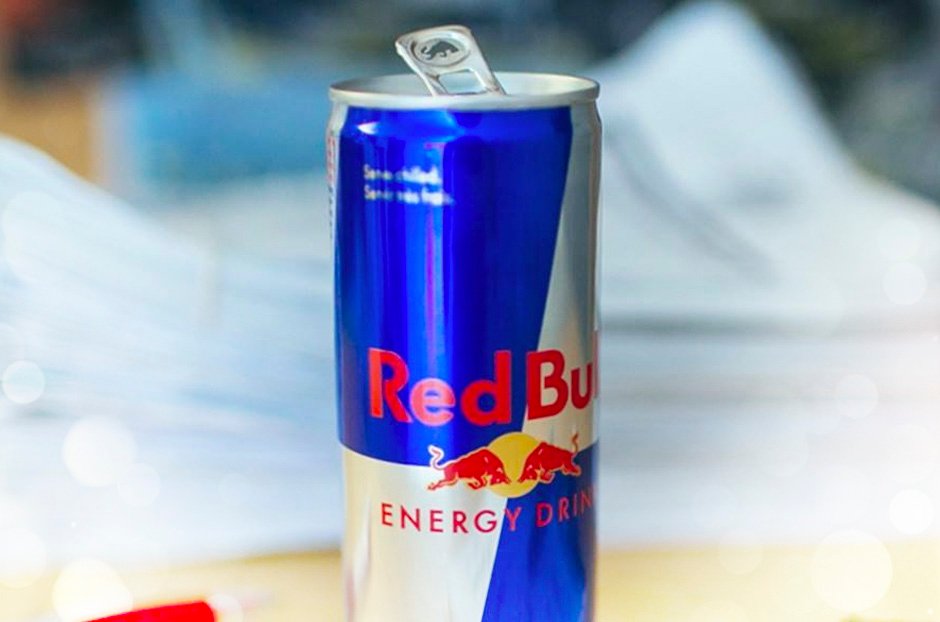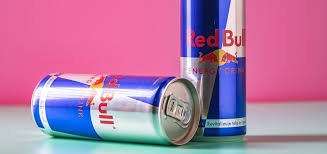Caffeine in Red Bull is a topic that raises a lot of questions, especially for those who rely on energy drinks to stay alert and focused. Red Bull is one of the most popular energy drinks in the world, but how much caffeine does it really contain? Is it safe to drink regularly? What are the health effects of consuming Red Bull? In this guide, we’ll break down everything you need to know about the caffeine in Red Bull, including how it compares to other drinks and what experts say about its health impact.
What Is Red Bull?

Red Bull is a carbonated energy drink that was first introduced in Austria in 1987. Since then, it has grown into a global brand available in over 170 countries. Known for its signature slogan, “Red Bull gives you wings,” the drink is marketed to boost energy, increase alertness, and improve concentration.
The main active ingredients in Red Bull are:
- Caffeine
- Taurine
- B-group vitamins
- Sugars (in the original version)
How Much Caffeine Is in Red Bull?
Let’s get straight to the key question: How much caffeine is in Red Bull?
| Red Bull Product | Serving Size | Caffeine Content |
|---|---|---|
| Red Bull Original | 8.4 fl oz (250 ml) | 80 mg |
| Red Bull Sugarfree | 8.4 fl oz | 80 mg |
| Red Bull Zero | 8.4 fl oz | 80 mg |
| Red Bull (12 fl oz can) | 12 fl oz | 114 mg |
| Red Bull (16 fl oz can) | 16 fl oz | 151 mg |
As you can see, an 8.4 oz can of Red Bull contains 80 mg of caffeine, which is roughly the same as a regular cup of coffee. However, larger cans can push caffeine content well over 100 mg per serving.
How Does Caffeine in Red Bull Compare to Other Drinks?
Here’s a quick comparison to put things in perspective:
| Beverage | Serving Size | Caffeine |
|---|---|---|
| Red Bull (8.4 oz) | 8.4 oz | 80 mg |
| Coffee (brewed) | 8 oz | 95 mg |
| Coca-Cola | 12 oz | 34 mg |
| Monster Energy | 16 oz | 160 mg |
| Green Tea | 8 oz | 28 mg |
While Red Bull doesn’t have the highest caffeine content, its convenient size and flavor can make it easy to consume more than one can without realizing how much caffeine you’re taking in.
How Much Caffeine Is Too Much?
According to the FDA, the safe limit for caffeine intake is up to 400 mg per day for healthy adults. That means:
- Up to 5 cans of 8.4 oz Red Bull, or
- Around 2.5 cans of the 16 oz version
However, individual sensitivity to caffeine varies. What’s safe for one person may cause jitters, headaches, or heart palpitations in another. Teenagers, children, and pregnant women should consume even less caffeine.
What Happens When You Drink Too Much Red Bull?
Excessive consumption of caffeine in Red Bull can lead to:
- Insomnia or trouble sleeping
- Increased heart rate
- High blood pressure
- Nervousness or anxiety
- Headaches
- Digestive issues
In extreme cases or when mixed with other stimulants or alcohol, Red Bull can increase the risk of heart problems or dehydration. It’s important to drink responsibly and know your limit.
The Role of Taurine and Other Ingredients
While caffeine is the most talked-about ingredient, Red Bull also contains taurine, an amino acid that supports neurological development and regulates water and mineral levels in the blood.
Other ingredients like B vitamins help convert food into energy, and sugar provides a quick boost. Red Bull Sugarfree and Red Bull Zero use artificial sweeteners instead of sugar, but their caffeine content remains the same.
Is Red Bull Safe?

For most healthy adults, moderate consumption of Red Bull is safe. The key is moderation. One can per day is unlikely to cause harm, especially if you’re not consuming other caffeine sources like coffee or tea.
However, if you’re:
- Pregnant or breastfeeding
- Sensitive to caffeine
- Suffering from heart conditions
- Under 18 years old
…it’s best to limit or avoid Red Bull entirely. Always read the label and consult a healthcare provider if unsure.
Tips for Drinking Red Bull Responsibly
To enjoy the benefits of Red Bull without the negative effects of too much caffeine, follow these tips:
- Stick to one can per day (especially the 8.4 oz version).
- Avoid drinking Red Bull late in the day to prevent sleep issues.
- Do not mix Red Bull with alcohol, as this combination can mask the effects of intoxication.
- Stay hydrated by drinking plenty of water alongside any caffeinated beverage.
- Monitor other sources of caffeine like coffee, tea, soda, or chocolate.
Common Myths About Red Bull
Let’s bust some of the common myths surrounding caffeine in Red Bull:
Myth 1: Red Bull has more caffeine than coffee.
Fact: An 8.4 oz can of Red Bull has less caffeine than a typical cup of coffee.
Myth 2: Red Bull is dangerous for everyone.
Fact: Red Bull is safe in moderation for most healthy adults.
Myth 3: Sugar-free Red Bull is caffeine-free.
Fact: Sugar-free versions still contain the same amount of caffeine.
Red Bull and Athletic Performance
Many athletes and fitness enthusiasts turn to Red Bull for a quick energy boost before workouts. The caffeine content can:
- Improve focus
- Enhance endurance
- Reduce perceived effort
However, sports nutritionists advise using energy drinks like Red Bull strategically and not as a substitute for hydration or proper nutrition.
Should You Drink Red Bull?
Here’s a quick checklist to help you decide:
Yes, if:
- You need a quick boost of energy
- You’re healthy and not sensitive to caffeine
- You consume it in moderation
No, if:
- You have heart problems or high blood pressure
- You’re under 18, pregnant, or breastfeeding
- You already consume high amounts of caffeine daily
Conclusion: Know What You’re Drinking
Caffeine in Red Bull isn’t inherently dangerous—but like all stimulants, it should be consumed in moderation. With 80 mg of caffeine per 8.4 oz can, Red Bull is comparable to a small cup of coffee. But the risks grow when you drink more than one can, mix it with other caffeine sources, or ignore your body’s warning signs.
So the next time you reach for a can, remember: One Red Bull might give you wings—but too many could clip them.
Also read – The Rise of Green Startups: Sustainability as a Business Model






